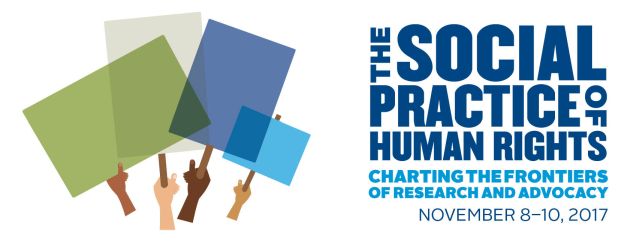
Start Date
11-10-2017 8:30 AM
Keywords
Experiments, Framing, Human Rights, Violence
Abstract
Are framing strategies that are effective at encouraging pro-social behavior such as participation in human rights campaigns also effective at mobilizing support for “anti-social” and violent causes? Using an experimental research design, we seek to understand under what conditions individuals will express support for retributive violent action.
We hypothesize that a personal story of victimization, wherein the humanity and vulnerability of the victim and the intensity of the violence suffered are described in vivid detail, will be necessary and sufficient to cause the audience to express support for the victim’s subsequent participation in organized, retaliatory violence. We expect that personal narratives will elicit both empathy and anger in the respondents, which in turn will make them more likely to support retributive violence. We also expect evocative images to enhance feelings of anger and lead to increased support for retributive violence.
In our experiment, participants were randomly assigned to a control group (shown a message absent humanizing details about the victim or vivid description of the victimization that occurs) or one of eight treatment groups:
(1) a personal story where neither the humanity of the victim nor the intensity of the violence is emphasized;
(2) a personal story where only the humanity of the victim is emphasized;
(3) a personal story where only the intensity of the violence is emphasized;
(4) a personal story where both elements are emphasized; or
(5-8) each of the above personal frames coupled with an evocative photograph.
We survey participants regarding their reactions to the narratives, their support for human rights action, and their likelihood to approve of the victim’s participation in a fictitious violent armed resistance movement.
Included in
Comparative Politics Commons, International Relations Commons, Other Political Science Commons, Peace and Conflict Studies Commons, Social Psychology Commons
The Power and Pathologies of Language: How Human Rights Messaging Can Also Affect Support for Violent Non-State Actors
Are framing strategies that are effective at encouraging pro-social behavior such as participation in human rights campaigns also effective at mobilizing support for “anti-social” and violent causes? Using an experimental research design, we seek to understand under what conditions individuals will express support for retributive violent action.
We hypothesize that a personal story of victimization, wherein the humanity and vulnerability of the victim and the intensity of the violence suffered are described in vivid detail, will be necessary and sufficient to cause the audience to express support for the victim’s subsequent participation in organized, retaliatory violence. We expect that personal narratives will elicit both empathy and anger in the respondents, which in turn will make them more likely to support retributive violence. We also expect evocative images to enhance feelings of anger and lead to increased support for retributive violence.
In our experiment, participants were randomly assigned to a control group (shown a message absent humanizing details about the victim or vivid description of the victimization that occurs) or one of eight treatment groups:
(1) a personal story where neither the humanity of the victim nor the intensity of the violence is emphasized;
(2) a personal story where only the humanity of the victim is emphasized;
(3) a personal story where only the intensity of the violence is emphasized;
(4) a personal story where both elements are emphasized; or
(5-8) each of the above personal frames coupled with an evocative photograph.
We survey participants regarding their reactions to the narratives, their support for human rights action, and their likelihood to approve of the victim’s participation in a fictitious violent armed resistance movement.


